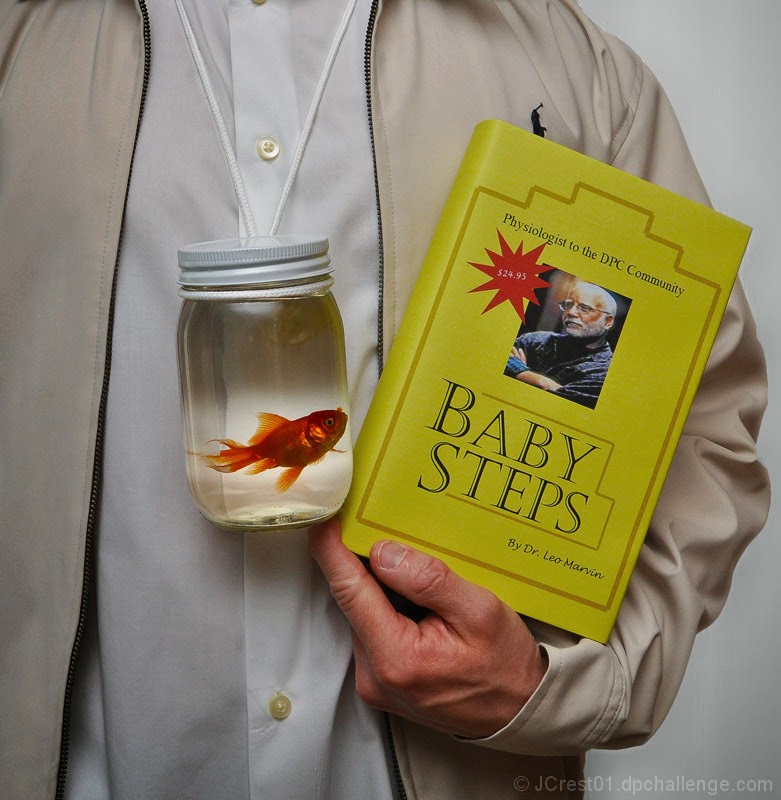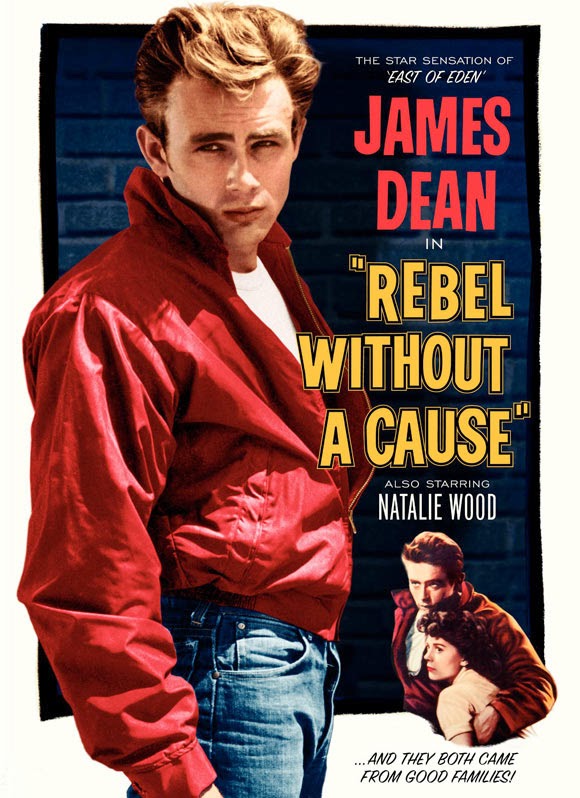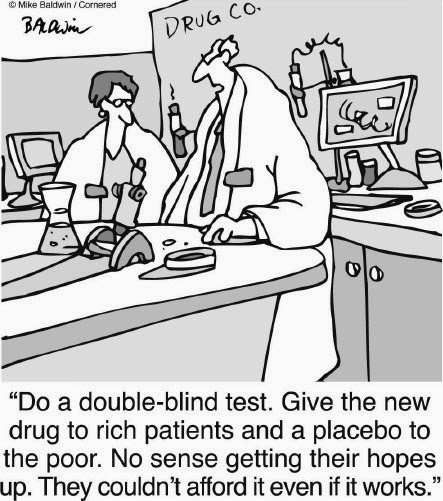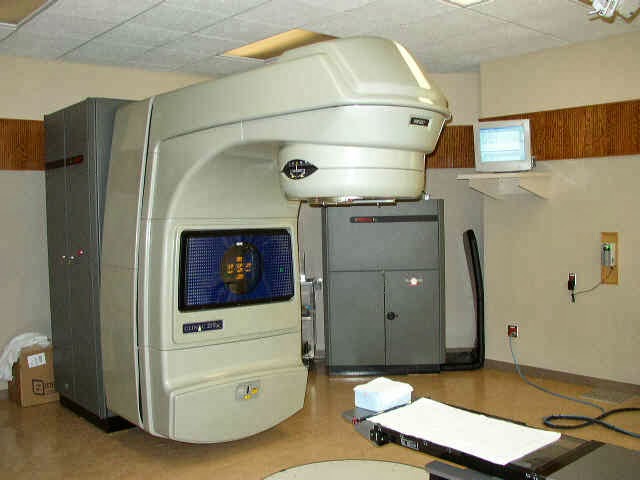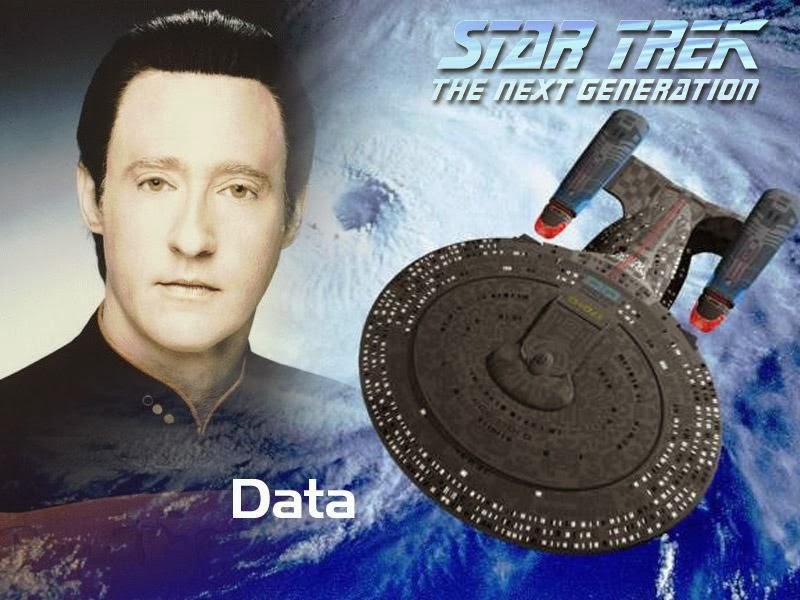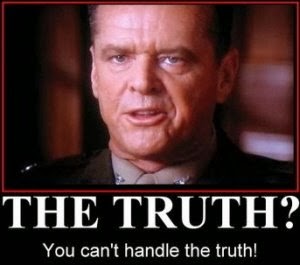Baby Steps and What About Bob?
I had the pleasure of addressing the students from the SciTech program at Tomken Middle School last week. Bright, enthusiastic, and interested in science… all 165 of them! I was there to talk about our sister program – Medical imaging Buddies. Remember the MiB movies? Very funny. Have a quick peek for fun. I’ll wait here.
So the question is always: “what do I do to get started?”. Believe it or not this applies to whether you are a 10 year old SciTech student or a radiologist on faculty with our department. I have been doing this for a while and I would like to share some encouraging suggestions that you may find helpful:
- Read this blog! OK, so I am shamelessly promoting my own program. But it is a perfect place to start. Easy reading, no commitment, anonymous, informative, and best of all FREE! Look for more resources like this one.
- As you are thinking about what has been said in the various posts think of what a next step could be that would move you closer to your goal of becoming a research scientist and at the same time not trigger a fight or flight response. Take Baby Steps just like in the movie What About Bob? What a hilarious movie but the small steps to slowly move you forward is no joke.
- Start telling people about who you are becoming. Share with them some of your achievable and positive goals. This way they will be able to encourage you when you need a little push AND be proud of you when you succeed.
- Don’t be afraid of failure. It is simply an unwanted outcome. So what. Learn from it and move on.
- Finally, don’t be a silo (unless you are Bruce Cockburn and singing If I had a Rocket Launcher). Be a team player. Remember to always bring something of value to your team. At first, this may just simply be positive energy and enthusiasm – good enough for my team!
Rebel Without a Cause… Or Maybe?
OK, enough with stats. Let’s talk a little about causality. You have been patiently wearing your pocket protector for a couple of months, asking the right questions all the time, and diligently reading this blog to glean as much information as possible to become a research scientist.
So what now? Do you feel a little like a Rebel Without a Cause? You are asking questions that are interested in describing an association of interest. How about the association between watching horror movies and myocardial infarction (MI). One possibility is that watching horror movies is the cause-effect of an MI. You’re thinking: sure but there must be other explanations. You are right! Actually there can be another 4 rival explanations:
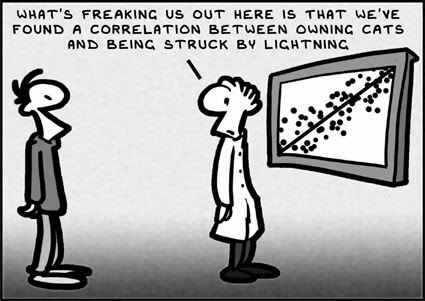
1- By chance alone you observed an association in your data. This is a spurious association.
3- Effect – cause: having an MI is the reason (cause) for watching horror movies – reverse to what you were thinking.
4- Confounding: watching horror movies is associated with a third factor that is the cause of MI. Say eating all those unhealthy snacks during the movie.
And of course don’t forget your initial “gut feeling” cause-effect: watching horror movies is a cause of MI.
Phew! That is a lot to think of. So what is important to remember? When designing your study to answer your question, you must always consider how to avoid spurious associations and concentrate on ruling out real associations that do not represent cause-effect. Especially those due to confounding.
Take a break and watch the Chicken Game from Rebel Without a Cause and then listen to Rebel Music to calm down after the game of chicken. So is playing chicken with cars hurtling towards a cliff associated with death? Possibly. But in watching the clip you see that maybe there is a confounding factor… See it?
Until next time in the blogosphere,
Pascal Tyrrell
Acting 101 – Radiation Therapy Role Play Exercise
How is acting and radiation therapy related? Here at the Michener Institute, there are actual actors coming in to perform as our patients during patient care simulation and practical assessments. This is very helpful and fun at the same time as we get some experience with “patients” and if we make any mistakes, all can be corrected before going into the real world. This can spare us some embarrassment – the first time I talked with a patient actor, I could not think of what to say so “I am drawing a blank” just slipped out of my mouth! At the end of the debrief, the actor told me I could have just pretended to know by acting like The Thinker! Looking sophisticated and deep in thought.
Beside the patient actors coming in, we also do role play in patient care labs – free acting lessons! Just the past Tuesday, we had a role play class for scenarios in patients with special needs. Some students are just natural actors/actresses, sometimes I wonder why they are not in acting. The class was very fun and educational and allowed us radiation therapy students to learn how the patients will react and how we can respond. Anyway, I wish I had video to show you how fun it was. If you are interested, you should apply to Michener next year and experience it yourself…
Until next time,
Gordon
The Michener Institute – What is a “Michener” Anyway?
What is the Michener Institute? Where is the Michener Institute? As students here at the Michener Institute, we get these questions a lot! So let’s start with a brief introduction. The Michener Institute is located right in the heart of the Toronto hospital district, just behind Princess Margret Hospital. It is an applied health science establishment specializing in many health related disciplines. These include chiropody, respiratory therapy and radiation therapy, just to name a few. Jennifer Vuong, Gordon Wang & Ori Wiegner, the three amigos, are all part of the Radiation Therapy program!
People have many misconceptions when it comes to radiation and its applications. The first thoughts that come to mind usually relate to atomic bombs or microwaves. People rarely think of the medical applications of radiation, such as cancer treatments, diagnostic x-rays and CT scans. The variety of uses for radiation is astounding!
This summer we are all excited to take part in our first ever clinical placements! Jennifer and Ori will be attending Princess Margret Hospital and Gordon will be attending Kingston Regional Cancer Center. We will continue to blog about our student experiences at Michener and very soon about our individual hands on experiences at our placements!
For more in information regarding the radiation therapy program visit: The Michener Institute – Radiation Therapy
Are You My Type, Data?
So you have come up with a research question and now you must chose a method by which your responses will be obtained. For example, a question like ‘Are you a Trekky?’ leads to a simple yes/no answer. So, are you? No need to fess up. I understand. Don’t know what I am talking about? See the trailer for my favorite of the Star Trek movies: The Wrath of Khan Trailer.
What if you were to ask, ‘How much of a Trekky are you?’. You are no longer able to use a simple two-category response but one that uses a continuous scale.
An important distinction to remember when dealing with responses in research is that in general some will be categorical, such as favorite TV series, race, or marital status, and others continuous variables like blood pressure, cholesterol levels, or how much you enjoy Star Trek shows on a scale of 1 to 10 recorded on a 100 mm line. For those of you who would score high here listen to Santana – You are my kind as a reward.
This brings us to the important concept of the level of measurement. If you are working with named categories – race for example – then you have a nominal variable. Categories that have an order to them – education level for example – are ordinal variables. What if the interval between your responses is fixed and known? Then you have an interval variable – temperature in Celcius or Fahrenheit is a good example. However, is zero degrees Celcius the same as zero degrees Fahrenheit? No. The latter is much colder! Now what if you are working in Kelvin which has a meaningful zero point? Then it is a ratio variable.
Ok, so why the big deal? The important difference is between nominal/ ordinal data and interval/ ratio data. The latter two can be used in what is termed: “parametric statistics” that gives us measures of center (mean) and spread (standard deviation). We have already touched on this in previous posts. See here: Great Expectations. It makes no sense to talk about the average sex of a sample students in your study. These data must be considered as frequencies in separate categories. We previously talked about this a little here: Ogive and this type of data leads to “non-parametric” analysis.
Enough already! I’ll let you get back to streaming Star Trek re-runs…
Next time lets talk a little about parametric statistics and how thy came to be. I’ll leave you with this quote as a teaser from one of the greatest statisticians to ever walk the earth – Ronald Fisher: “The analysis of variance is not a mathematical theorem, but rather a convenient method of arranging the arithmetic.”
Pascal Tyrrell
Pick me! Pick me! Pick me!
Interview with the (research) Devil
Interviews, the most loved and hated type of activity for all, from the powerful, skeptical, God-like interviewers seeking information to the innocent, intimidated and incapsulated interviewees, seeking a break. So many emotions happen when two people meet for the first time, in the interview setting. I definitely know what it’s like to be put in the hot seat, as the one word I felt coming into my own interview with the University of Toronto for this program – terrifying. I was completely terrified. New offices in the heart of Toronto, I felt like a small town girl moving to the big city alone. It was almost a coming of age experience – one small step into the building, yet one giant step for the adolescent-adulthood phase I am now transitioning into.
The Truth? You Can’t Handle the Truth!
In “A Few Good Men” Jack Nicholson growls “You can’t handle the truth” to Tom Cruise in his Academy award winning performance. Watch a clip of his gritty performance: A few good men. Our pursuit of the truth leads to an interesting path indeed.
This series of posts has as objective to help you develop a scientific “sense”. Have a quick peek at my other posts (http://mivip-utoronto.blogspot.ca/) if you haven’t already and come back. So wanting to know the truth is something we all strive for on a daily basis. Finding the truth is another matter altogether and this philosophical conundrum has challenged many great minds for centuries.
The Roman Emperor Marcus Aurelius once stated many, many years ago: “Everything we hear is an opinion, not a fact. Everything we see is a perspective, not the truth”. Have a quick peek at the trailer for “Gladiator” to put you in the mood. Gladiator
Now Greek philosopher Plato, who predated Marcus a few centuries, got the ball rolling when he presented his Allegory of the Cave, in which he symbolically described his belief that the world revealed by our senses is not the real world but only a poor copy of it, and that the real world can only be apprehended intellectually. Plato used an analogy where we are represented as a gathering of people who live chained to the wall of a cave all of our lives, facing a blank wall. We watch shadows projected on the wall by things passing in front of a fire behind them, and begin to designate names to these shadows. The shadows are as close as we get to viewing reality.

